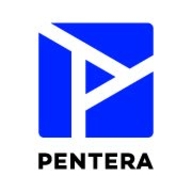

Acunetix and Pentera are key competitors in the cybersecurity software market, focusing on vulnerability assessment and management solutions. Acunetix appears to have an advantage with its fast automated scans and detailed reporting, while Pentera excels in continuous vulnerability assessments and evidence-based remediation.
Features: Acunetix offers a web-based graphical interface, a scan scheduler, and a robust vulnerability scanner for cross-site scripting. Its Interactive Application Security Testing module provides detailed insights. Pentera is known for continuous vulnerability assessments and evidence-based remediation, with its cloud-based solutions, Pentera Core and Surface, effectively evaluating cybersecurity perimeters.
Room for Improvement: Acunetix could enhance its IAS tool, better integrate OWASP Top Ten vulnerabilities, and expand manual testing options. Additionally, reducing false positives and improving licensing flexibility are needed. Pentera could improve its dashboard capabilities, better integrate with existing pentesting processes, and offer more affordable licensing for smaller organizations. Simplifying its technical reporting for executive understanding would also be beneficial.
Ease of Deployment and Customer Service: Acunetix supports on-premises, private, public, and hybrid cloud deployments, with generally positive customer support experiences but varying response times. Pentera supports on-premises and hybrid cloud deployments with reliable tech support, although its ticketing system results in average response times.
Pricing and ROI: Acunetix pricing is viewed as expensive with a complex licensing model, yet it provides good value for its features, offering positive ROI through improved application security. Pentera is also considered costly, delivering good value for its vulnerability assessment capabilities, contributing to its appreciated ROI for comprehensive security assessments.
It saves a significant amount of time by covering attack surfaces.
Some customers consider the ROI favorable, but facing difficulties now due to changes in the licensing model, which has made it more expensive compared to last year.
The technical support from Invicti is very good and fast.
The technical support from Acunetix is quite good
Acunetix should have better integration with newer tools such as GitHub and Azure DevOps.
The support program was helpful in addressing it.
When the IP is imported into a system, we cannot withdraw or revoke the license.
The pricing of Acunetix is pretty expensive and could be improved.
We secured a special licensing model for penetration testing companies, which is cost-effective.
Acunetix integrates with every type of tool, including CI/CD tools, offering 100% integration in DevOps environments.
Its most valuable role is in enhancing security by identifying potential vulnerabilities efficiently.
I find it to be one of the most comprehensive tools, with support for manual intervention.
We can automate the Pentera processes by automatically creating scenarios to validate the system.
| Product | Market Share (%) |
|---|---|
| Acunetix | 2.6% |
| SonarQube Server (formerly SonarQube) | 20.8% |
| Checkmarx One | 10.2% |
| Other | 66.4% |
| Product | Market Share (%) |
|---|---|
| Pentera | 28.5% |
| Cymulate | 20.5% |
| Picus Security | 17.5% |
| Other | 33.5% |


| Company Size | Count |
|---|---|
| Small Business | 15 |
| Midsize Enterprise | 5 |
| Large Enterprise | 14 |
| Company Size | Count |
|---|---|
| Small Business | 5 |
| Midsize Enterprise | 1 |
| Large Enterprise | 4 |
Acunetix Web Vulnerability Scanner is an automated web application security testing tool that audits your web applications by checking for vulnerabilities like SQL Injection, Cross site scripting, and other exploitable vulnerabilities.
Pentera is the category leader for Automated Security Validation, allowing every organization to evaluate its security readiness, to know its real security risk at any given moment. Test all cybersecurity layers across the attack surface – inside and out – by safely emulating attacks & prioritize patching with a risk-based remediation roadmap.
Thousands of security professionals and service providers around the world use Pentera to guide remediation and close security gaps before they are exploited. For more info visit: pentera.io
We monitor all Application Security Tools reviews to prevent fraudulent reviews and keep review quality high. We do not post reviews by company employees or direct competitors. We validate each review for authenticity via cross-reference with LinkedIn, and personal follow-up with the reviewer when necessary.